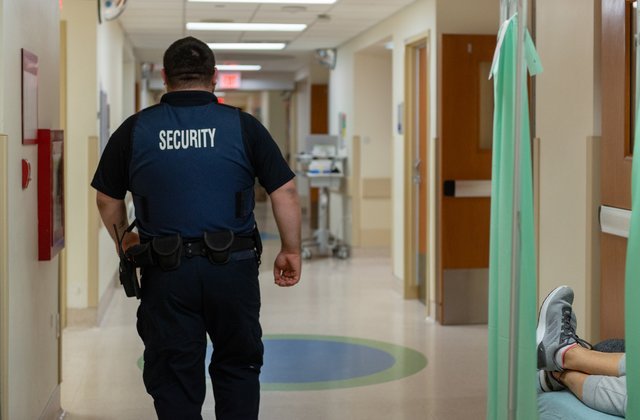The Indispensable Role of Armed Guards in Hospital Security

In an ever-changing world, where security concerns have become a top priority for institutions across various sectors, the vital role of armed guards in hospital security has gained significant recognition. Hospitals are places of healing, compassion, and care, where patients seek medical attention and families entrust the well-being of their loved ones. However, the unique nature of hospitals also makes them susceptible to a range of security threats, making the presence of armed guards crucial to ensuring the safety of all individuals within the premises.
Understanding the Security Challenges
Hospitals, by their very nature, are open spaces that welcome a diverse range of individuals daily, including patients, visitors, healthcare professionals, and support staff. This high footfall, combined with the emotional stress often experienced by patients and their families, can give rise to tense situations and conflicts. Moreover, valuable medical equipment, pharmaceuticals, and personal belongings make hospitals potential targets for theft. In extreme cases, incidents involving disgruntled individuals, workplace violence, or even armed intruders can occur, endangering the lives of patients and staff alike.
The Role of Armed Guards
Armed guards play a multifaceted role in hospital security that extends beyond their immediate presence. Here are some key aspects of their indispensable role:
- Visible Deterrence: The presence of armed guards serves as a powerful deterrent against potential wrongdoers. The sight of uniformed guards equipped with firearms creates an atmosphere of authority and vigilance, discouraging individuals with ill intentions from attempting any criminal activity.
- Immediate Response: In emergency situations, every second counts. Armed guards are trained to respond swiftly and effectively to incidents such as violent altercations, active shooters, or other threats. Their training equips them to neutralize threats and safeguard lives until law enforcement arrives. Buy semi automatic shotguns and other latest firearms to enhance hospital security.
- Crisis Management: Hospital environments can escalate quickly due to the emotional distress experienced by patients and their families. Armed guards are trained in de-escalation techniques, enabling them to defuse potentially volatile situations before they spiral out of control.
- Protection of Valuables: Hospitals house expensive medical equipment and pharmaceuticals that are essential to patient care. Armed guards provide an added layer of protection against theft, vandalism, and unauthorized access, safeguarding these critical resources.
- Securing Restricted Areas: Hospitals have areas that require restricted access, such as sensitive medical records, pharmaceutical storage, and operating rooms. Armed guards control and monitor these areas, preventing unauthorized individuals from entering and maintaining patient privacy.
- Collaboration with Law Enforcement: In the event of a security breach or a criminal incident, armed guards are well-equipped to collaborate with local law enforcement. Their training and familiarity with the hospital’s layout can aid law enforcement in quickly addressing the situation.
- Training and Preparedness: Armed guards undergo rigorous training to handle various security scenarios. This training includes crisis management, first aid, communication skills, and firearms proficiency. Their preparedness contributes to the overall safety and resilience of the hospital environment.
Balancing Security and Compassion
While armed guards bring an essential layer of security to hospitals, it’s crucial to strike a balance between security measures and the compassionate atmosphere that healthcare institutions aim to provide. Hospitals must ensure that security measures do not compromise the patient-centered environment and the provision of medical care.
Conclusion:
In an era marked by heightened security concerns, hospitals stand as vital institutions in need of robust security measures. Armed guards play an indispensable role in safeguarding the well-being of patients, visitors, and staff alike. Their presence offers a sense of safety and assurance, enabling hospitals to focus on their core mission of providing healthcare without undue worry about security threats. By maintaining a delicate equilibrium between security and compassion, armed guards contribute significantly to creating a secure environment where healing can take place unhindered.






